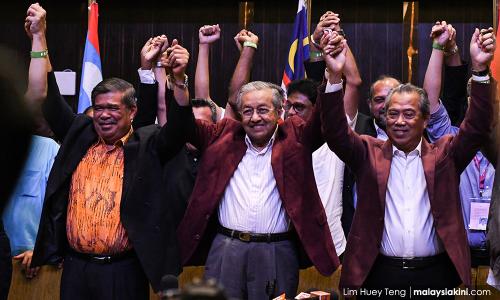Crew in denial, Harapan skipper steering ship to disaster
COMMENT | I have no personal grudges against Dr Mahathir Mohamad, who was also the prime minister during my formative years and now the present PM close to my retirement age.
Mahathir has been consistently a Malay supremacist since his youth. It is fair that many, especially the younger generation who never lived under the shadow of his former reign under Umno/BN, genuinely believe that he is a changed man and even regard him as bapa refomasi. No theory can explain this phenomenon except for the Stockholm syndrome where one identifies with his or her's oppressor or captor.
It is short of honesty for some seasoned political leaders to overwhelmingly convince the public that he, who was a reborn hero, would do wonders to save the nation and carry out institutional reforms for better governance, while knowing that it was an immense risk to bet the country's future on a single leader who has admitted, honestly and publicly over and over again, to be a disbeliever in true checks-and-balance democracy.
These leaders have purportedly instilled a Stockholm syndrome that they themselves had manifested into reformist followers, especially the enthusiastic younger generation who never went through the period of turbulence during Mahathir’s first reign as prime minister. They were convinced that he was going to be the country’s only saviour.
It only shows a lack of confidence in their own convictions to bring about reforms and changes after having misled the public to believe that without the Malay supremacist Bersatu and Mahathir, there would not have been a change of government.
In actual fact, there has been no change in ways of governance since the downfall of BN on May 9, 2018, but a mere change of guards.
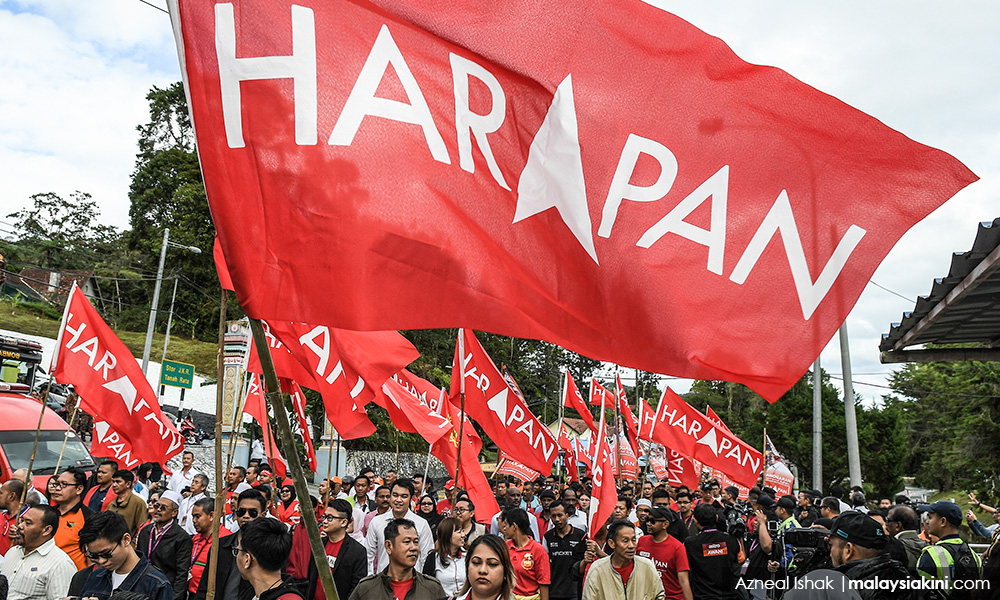
Kleptocracy could be dated to the years before and after Mahathir was the PM under BN. Nonetheless, the prevalent Stockholm syndrome among those who are now holding high official positions and GLC directorships have blinded the eyes of Harapan leaders who are in denial of their inability and unwillingness to forge real institutional reforms promised in their pre-GE14 manifesto.
It is simply due to a lack of coordination with the skipper, who never believed in the manifesto, nor showed any interest in steering the team towards any reforms. Many Harapan leaders feel an allegiance to Bersatu and Mahathir for their present prestigious positions, lucrative allowances and perks paid by taxpayers’ money, ignoring the fact that the Malaysian people are their ultimate bosses.
Mahathir has consistently championed race-based parties and politics from when he was in Umno to Bersatu now, and professes a Malay supremacist socio-economic model. Bersatu’s ideological values, inherited from Umno, are in great contrast to other Harapan component parties such as PKR, DAP and Amanah, which profess multiculturalism and need-based affirmative action.
The recent controversy reveals the internal conflict of ideological values in terms of the 90:10 racial quota for matriculation admissions, which strictly speaking is a form of glass-walled apartheid more than needs-based affirmative action.
Bersatu, with its repetition of Umno Malay supremacy rhetori,c has converted Pakatan Harapan from a hopeful, forward-looking reform movement to a regressive course.
Umno elected legislators crossing over to Bersatu should not have been a surprise to anyone because from the very outset, Mahathir has made it crystal clear that his intention to work with other Harapan component parties was to topple Najib Abdul Razak and to save Umno and BN. An eventual merger of Bersatu and Umno seems more than likely to happen.
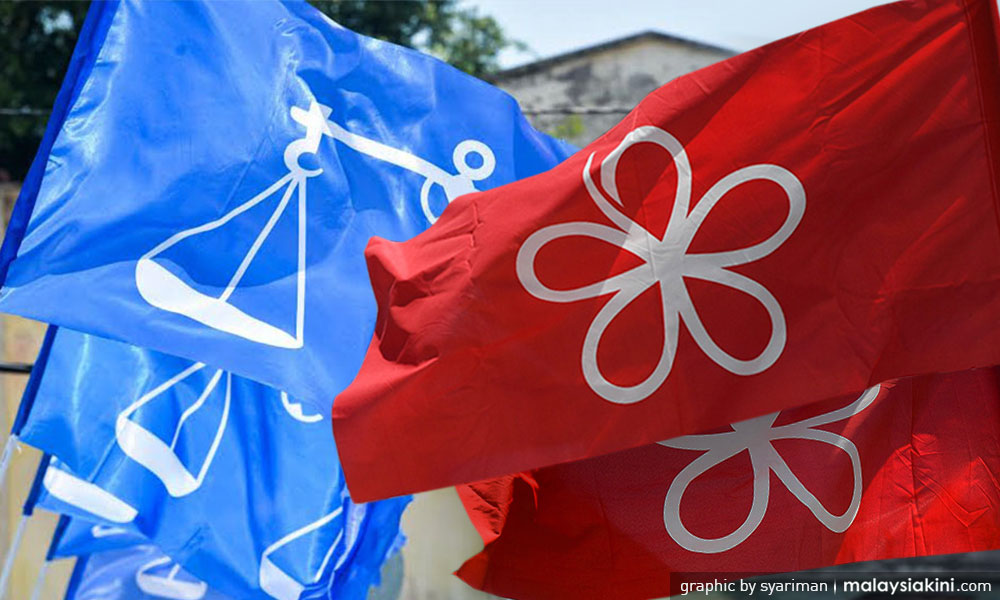
Why were many critical of the merger between the initial three multiracial Harapan component parties with Bersatu? For undisclosed reasons, the specific form of 3+1 (initial Harapan multicultural components plus Bersatu) cooperation was proposed, but was never encouraged to be debated among the Harapan rank-and-file at all.
Those who believed in the 3+1 combination would be better off had they foreseen the ingrained conflict of values between Bersatu and the other component parties. There had also been a possibility of a Bersatu and Umno merger due to a similar ideology.
One needs to study Taiwan’s and Japan’s democratisation processes in order to understand the reasons behind the current uncertainty within Pakatan Harapan.
Taiwan has had a routine change of government without any major upheavals, while its economy has exceeded that of Malaysia. Malaysia had a higher GNP per capita than Taiwan and S Korea at the beginning of Mahathir’s first premiership in 1980. Comparatively, Malaysia has lagged behind other Asian "tigers" because of Mahathir's Malay supremacist socio-economic model that has blunted our business and industrial sectors’ competitiveness. It has also cultivated corruption, cronyism and money politics.
My deepest concern is not who would win in the next general election, but whether Malaysia’s newborn “bi-coalition democracy” will survive. Mahathir has revived his old policies, including the Look East policy from his previous premiership.
We should worship neither China's feudalistic past nor Japanese Bushido blindly without comprehending Japan’s culture and history. One of the amazing strengths of the Japanese education system is its civics education, in which one’s responsibility and duty to society are given a more paramount emphasis over his privileges and rights.
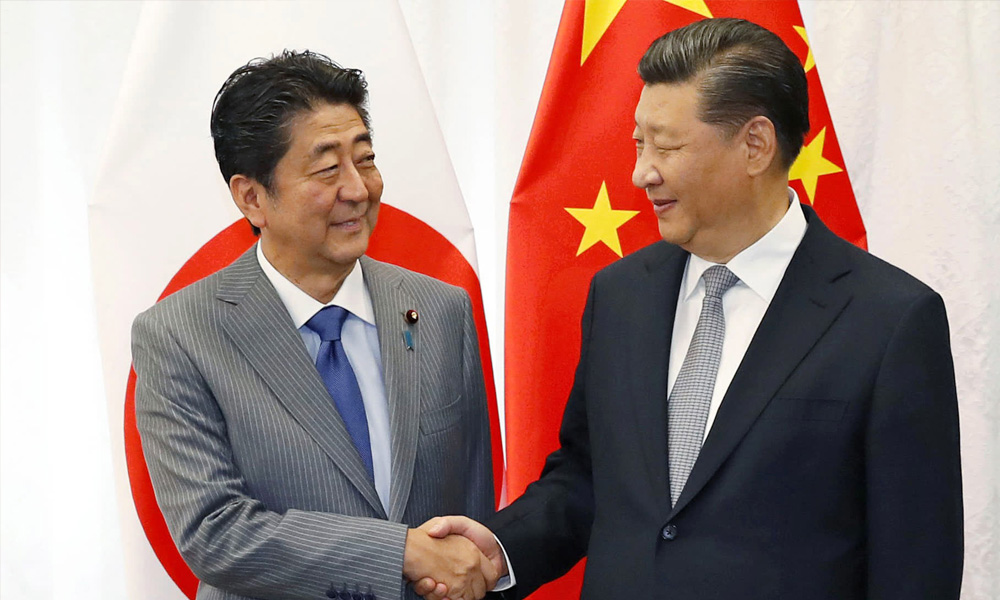
On the contrary, civics education was removed from all Malaysian schools in 1976 when Mahathir was the education minister. Then came the Biro Tata Negara in 1981 when he was the prime minister. Biro Tata Negara has been accused of propagating the ideology of Malay supremacy among the civil servants and was banned by both Pakatan Rakyat governments in Selangor and Penang in 2009. Ironically, it was only abolished in August 2018 when Pakatan Harapan came into power under none other than Mahathir’s premiership.
It is a manifestation of a Stockholm syndrome for the ignorant younger generation to thank Mahathir for ending it, when its existence had caused polarisation among the Malaysians.
It would be a great service to the nation if Mahathir does not hinder institutional reforms. The least he could do to save the nation is to now pass the baton to a new breed of leaders and ensure a healthy bi-coalition, and multicultural democracy be sustained for a long time to come.
Would Pakatan Harapan be like the Democratic Party of Japan (DPJ)? LDP has dominated Japanese political power for decades, despite a short period of change of government in 2009 to DPJ which had absorbed in 1998 a number of political parties, mainly SDP and LDP factions, with contrasting ideologies, similar to the state of affairs in Harapan now. It could only be the government for three years between 2009 and 2012 before it was eventually dissolved in 2016.
DPJ’s eventual dissolution should serve as a reminder to Harapan component parties on the importance of abiding by its pre-election promises. Any component party and leaders belittling their own election manifesto should be severely dealt with or even considered for expulsion.
Harapan's formation seems to be more for political expedience than building a genuine bi-coalition democracy. Harapan leaders have not been seen to be serious about forming a formidable political partnership and competitive good governance to be reckoned with. In the name of "saving the country", the relegation of many experienced, vibrant reformasi-age leaders, poses an immediate threat to Harapan’s survival.
Most Harapan leaders are still in denial, believing that Harapan is doing great and will win a walkover in the next GE despite losses in the recent three by-elections in Cameron Highlands, Semenyih and Rantau (which might not necessarily reflect the outcome of the next general election).
My greatest concern is not whether Harapan or BN will win the next general election, but whether "New Malaysia" will be a vibrant new bi-coalition and multi-partisan democracy.
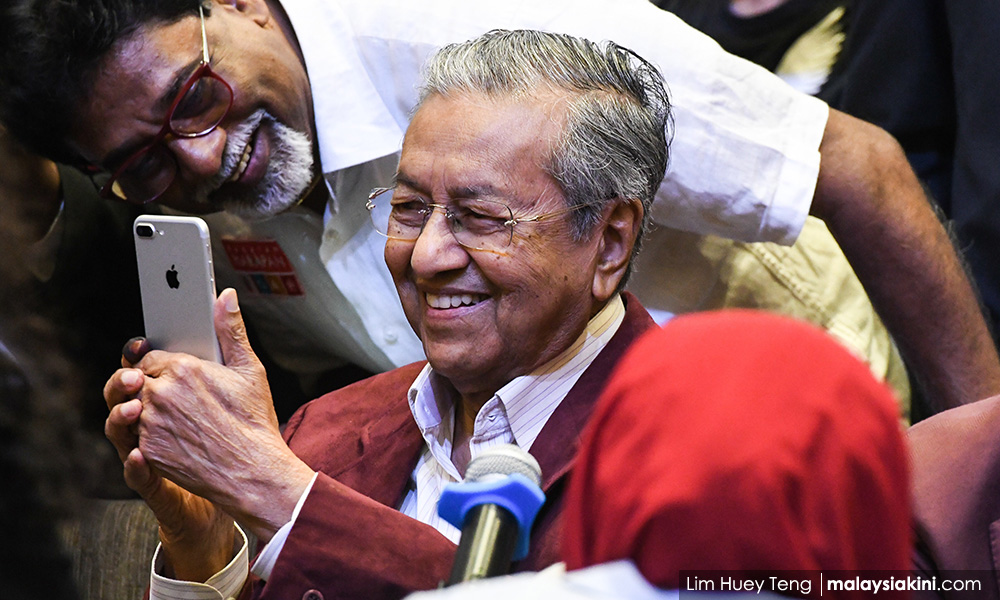
Race-based politics arising from the root cause of Malay dominant nationalism remains the stumbling block to the country’s progress in both socio-economic and political development. Undeniably, Bersatu, Umno and PAS each have their fair share of regressive race and religion politics. It also affects Harapan’s core supporters in the urban and semi-urban areas where the demand for more decisive reforms are high.
It is a lack of confidence, perhaps another form of a Stockholm syndrome, among many Harapan leaders that leads to the belief that the Malay electorate is unwaveringly addicted to race and religion politics.
It is wrong to belittle the Harapan manifesto in order to appease racial politics and Bersatu's unilateral bumiputera agenda. In GE14, Malay voters’ pattern was typical of how advanced people would have voted - that is, an even distribution of support between BN at 40 percent, Harapan, 30 percent and PAS 30 percent.
The most effective and sensible strategy is to improve the economy and the people’s quality of life to consolidate the original bases of support and to venture deeper into the rural bases. At the end of the day, bread-and-butter issues matter most.
The recent surveys done by the Merdeka Centre show that Malaysians' approval of both Mahathir’s personal performance and Harapan's collective performance has plummeted.
Revengeful politicking between the old nemeses has overshadowed the urgency to improve our economy and institutional reforms. Perhaps it is no surprise that not only is the divided Harapan crew pretty much in denial that the ship is heading for disaster, we also have a skipper who is steering the ship in the disastrous direction he wants.
But at least he has been honest from the outset on where he had wanted the ship to go, despite the denial and Stockholm syndromes of its crew members.
DR BOO CHENG HAU is the former assemblyperson for Skudai.
The views expressed here are those of the author/contributor and do not necessarily represent the views of Malaysiakini.
RM12.50 / month
- Unlimited access to award-winning journalism
- Comment and share your opinions on all our articles
- Gift interesting stories to your friends
- Tax deductable
